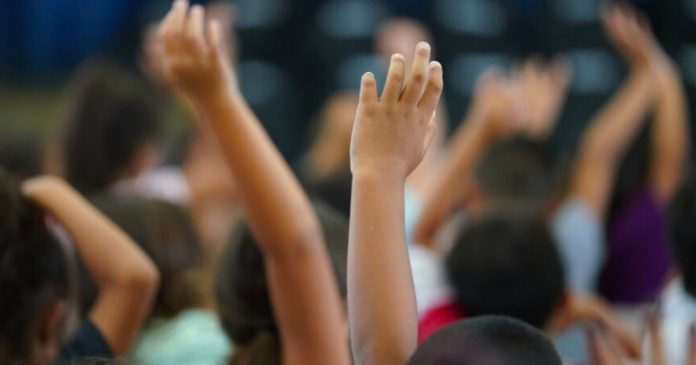A CBC News host has come under fire for allegedly editorializing during a broadcast of its talk-radio show Cross Country Checkup, according to Blacklock’s Reporter.
The taxpayer-funded media’s ombudsman Jack Nagler alleged that host Ian Hanomansing left the realm of balanced reporting while discussing the contentious issue of immigration on a segment of Cross Country Checkup last year, a radio show which allows listeners to call in.
Nagler said that instead of remaining nonpartisan on the issue, Hanomansing instead offered a “value judgment” after he said that people “want more immigrants to come to Canada.”
“It was simply too easy to interpret these remarks as a value judgment,” wrote Nagler. “I agree that CBC can do better.”
Hanomansing made the comments while interviewing Immigration Minister Marc Miller and the two were discussing the question “Is it fair to increase immigration when housing is scarce?”
Hanomansing also said that Canada’s recent record-high immigration targets were indispensable, which ultimately led to complaints from some listeners.
“We welcome immigrants,” said Hanomansing. “They’re essential to this country and we want more immigrants to come to Canada. We invite and rely on immigrants to come to this country.”
The radio host went on to say immigration was “an essential part of the Canadian experience” and that immigrants were “filling much-needed jobs from health care to high tech to the trades.”
His comments were later defended by Cross Country Checkup senior producer Richard Goddard, who claimed that the broadcast remained unbiased.
“We were not debating whether immigration to Canada is good or bad, but we did include views on the possible housing impacts of the relatively high level of immigration,” said Goddard.
However, Nagler argued that CBC hosts should not confuse opinion with fact.
“In other words, don’t put your finger on the scale when it comes to determinations about which sides are right or wrong on a matter of public controversy,” wrote Nagler.
“Use phrasing that is unlikely to be interpreted as a value judgment. Rather than saying that immigration has been an ‘essential’ part of the Canadian experience, perhaps it could be described as a ‘prominent’ one.”
CBC News did not respond to True North’s request for comment.
Canada took in 471,500 landed immigrants and another 766,520 migrant workers last year.
Those figures do not include the additional 1,040,985 foreign students who came into the country in 2023.
A recent study found that immigration concerns among Canadians have more than quadrupled over the last two years.
The Angus Reid Institute study released earlier this month asked Canadians about the country’s various issues and challenges and which ones concerned them most.
In Sept. 2022, only 5% of Canadians listed immigration and refugees as a top concern. The most recent version of the study, conducted online between Aug. 29 and Sep. 3, 2024, with 1,420 Canadian adults, found that 21% of Canadians are now worried about the issue, an increase of 4.2 times from two years ago.
Growing concerns around immigration mean the issue is tied with climate change for fourth place. Eclipsing these two are worries about housing affordability, healthcare, and cost of living/inflation, top concerns for 32%, 45%, and 57% of respondents, respectively.
“While the number of Canadians galvanized over the cost of living and inflation is beginning to decrease, their attention is fixating on an issue that was once only glancingly thought of: immigration,” reads the study.



























